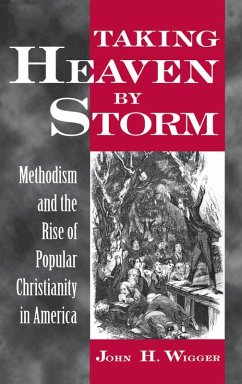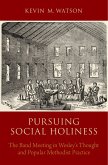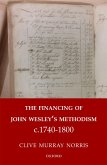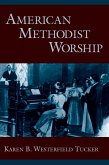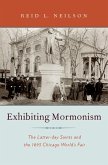Following the Revolutionary War, American Methodism grew at an astonishing rate, rising from fewer than 1000 members in 1770 to over 250,000 by 1820. In Taking Heaven by Storm, John H. Wigger seeks to explain this remarkable expansion, offering a provocative reassessment of the role of popular religion in American life. Early Methodism was neither bland nor predictable; rather, it was a volatile and innovative movement, both driven and constrained by the hopes and fears of the ordinary Americans who constituted its core. Methodism's style, tone, and agenda worked their way deep into the fabric of American life, Wigger argues, influencing all other mass religious movements that would follow, as well as many facets of American life not directly connected to the church. Wigger examines American Methodism from a variety of angles, focusing in turn on the circuit riders who relentlessly pushed the Methodist movement forward, the critical role of women and African Americans within the movement, the enthusiastic nature of Methodist worship, and the unique community structure of early American Methodism. Under Methodism's influence, American evangelism became far more enthusiastic, egalitarian, entrepreneurial, and lay oriented--characteristics that continue to shape and define popular religion today.
Dieser Download kann aus rechtlichen Gründen nur mit Rechnungsadresse in A, B, BG, CY, CZ, D, DK, EW, E, FIN, F, GR, HR, H, IRL, I, LT, L, LR, M, NL, PL, P, R, S, SLO, SK ausgeliefert werden.

